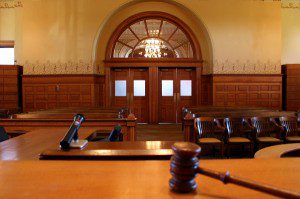 The fact that the public-trial right is subject to exceptions suggests that not every public-trial violation results in fundamental unfairness. Indeed, the Court has said that a public-trial violation is structural because of the “difficulty of assessing the effect of the error.”
The fact that the public-trial right is subject to exceptions suggests that not every public-trial violation results in fundamental unfairness. Indeed, the Court has said that a public-trial violation is structural because of the “difficulty of assessing the effect of the error.”
This portion of the holding sends a clear message to judges and prosecutors that denying the public access to the courtroom, a hallmark of our democracy and justice system, can be disregarded without fear of a subsequent conviction being reversed. Thus, there is no meaningful deterrent for violations of this time-honored right which applies to defendants and the public. The rights of the public should not be disregarded just because the proceeding might still be considered fair from the defendant’s standpoint.
The public-trial right also furthers interests other than protecting the defendant against unjust conviction, including the rights of the press and of the public at large. Thus, an unlawful closure could take place and yet the trial will still be fundamentally fair from the defendant’s standpoint.
The proper remedy for addressing the violation of the right to a public trial depends on when the objection was raised. If an objection is made at trial and the issue is raised on direct appeal, the defendant generally is entitled to “automatic reversal” regardless of the error’s actual “effect on the outcome.” If, however, the defendant does not preserve a structural error on direct review but raises it later in the context of an ineffective-assistance claim, the defendant generally bears the burden to show deficient performance and that the attorney’s error “prejudiced the defense.” To demonstrate prejudice in most cases, the defendant must show “a reasonable probability that the result of the proceeding would have been different” but for attorney error. For the analytical purposes of this case, the Court will assume, as petitioner has requested, that even if there is no showing of a reasonable probability of a different outcome, relief still must be granted if the defendant shows that attorney errors rendered the trial fundamentally unfair.
